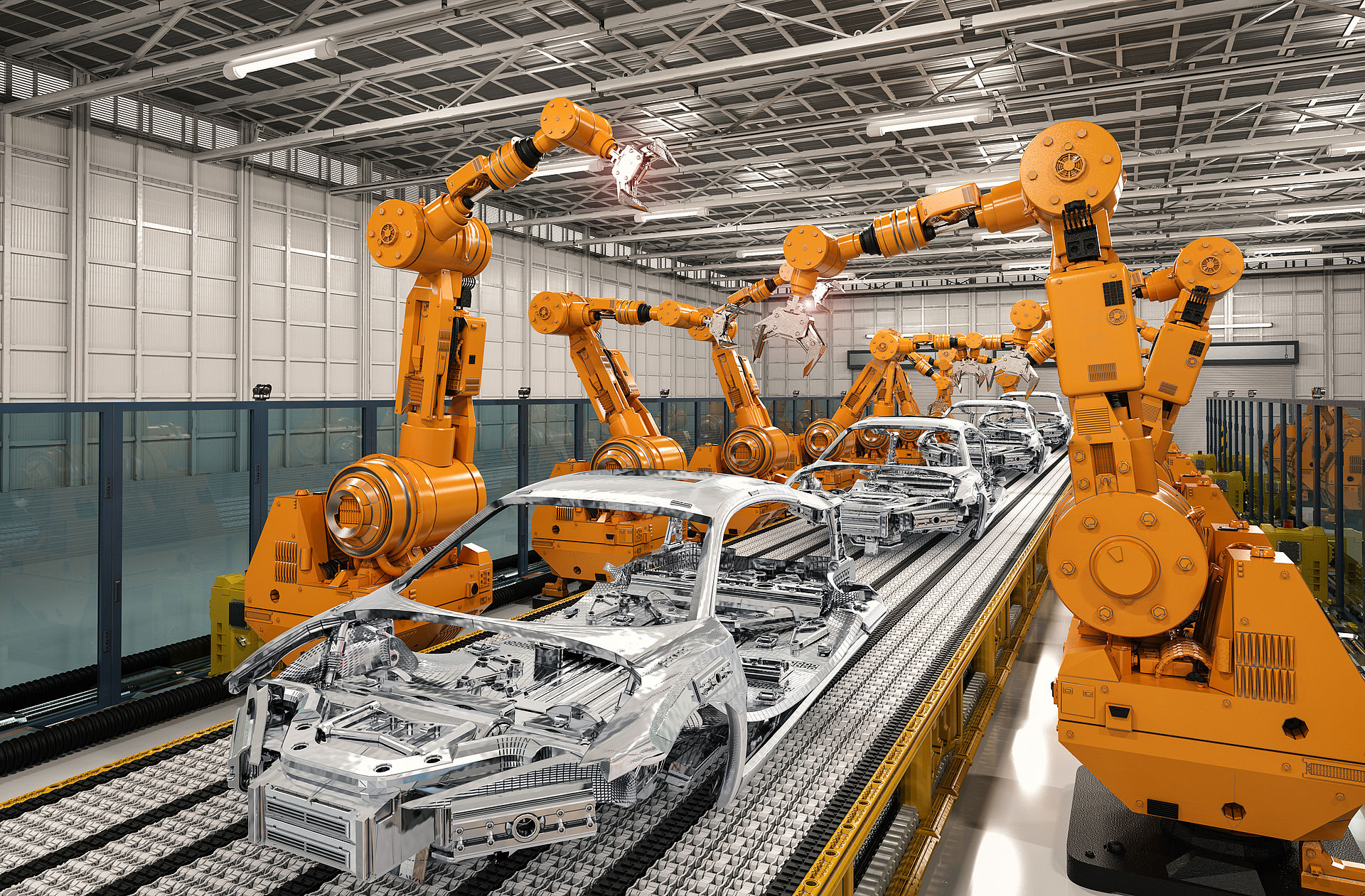"It will make a significant difference for Germany as a business location whether we have a launch site or not"
Joachim Lang, Director General of the BDI, is convinced that the market for small satellites will grow strongly in the coming years and that Germany therefore needs its own launch site for micro-launchers
Joachim Lang has been Director General of the Federation of German Industries (BDI) since 2017. He is a fervent supporter of the initiative to establish a German launch site for micro-launchers, which was presented for the first time at the BDI Space Congress last October. In an interview with OHB's Head of Corporate Communications Günther Hörbst, he explains why the New Space movement is helping to make the space industry an increasingly important part of the economy and society and why he is convinced that a mobile launch platform in the North Sea would give Germany a locational advantage.
Mr. Lang, when will the first micro-launcher start its journey into space from a German launch site?
JL: We have almost everything we need: the know-how and the micro-launcher manufacturers, the enthusiasm and even a well suited location. What we are still missing is a little public support from federal and state authorities, i.e. the necessary permits and the initial investment.
What kinds of approvals are still needed?
That ranges from the use of airspace to environmental protection. First everything has to be checked, then all those involved have to give their assessment. This is a process that starts now. But we are very confident.
Were you surprised how positively politicians and the public received the BDI proposal?
We presented the initiative for a German launch site for micro-launchers for the first time at our BDI space congress in October last year. There was a moment of hesitation, I have to admit. I'm sure some people asked themselves: What's going on with the BDI? But the more people became involved in the topic, the clearer it became what fantastic potential we have in the field of New Space in Germany. Many innovative companies are active in this field. Then, in consultation with the industry, micro-launcher manufacturers and the maritime industry, we presented a 50-page concept on how such a spaceport, a mobile launch platform at sea, could be implemented. The market estimate is that by 2028 10,000 satellites will be launched into space, 86 percent of which will be small satellites. This will create undreamt-of new opportunities for Earth observation and for environmental and climate protection. There is a huge interest, also from the state side, in receiving near real-time data.
Let us assume that this development will take place as you describe, with a spaceport on German soil including a vibrant micro-launcher industry. What would change for the German economy?
From our point of view, in the age of digitalisation the space industry is a key to future technologies such as autonomous driving, Industry 4.0, Big Data applications or climate protection. So it will no longer be possible to imagine life without it. The question is: Do we want to have independent access to the necessary data for these technologies? Many people here in Germany say: We can establish that access, we have all the capabilities. Someone who is not familiar with the technology first thinks of a launch site on the mainland. They don't know that launches are also possible from a platform in the North Sea, which offers many advantages. We have described this in the BDI concept paper.
What potential does the BDI see in the micro-launcher industry?
Space projects will become a much more integral part of our economy and society than they have been so far, simply because the benefits are much more visible. For a long time, space missions were extremely expensive and a rather exclusive business. The space business was basically something like Formula 1, and this is now changing. If the costs go down, many more participants can join in. Take imaging data, for example. With small satellites, you can provide images that did not exist before or became available only by chartering helicopters or airplanes. The central element of this New Space industry is that the costs of applications decrease, which means that the circle of users and possible uses will grow extremely in the coming years.
Then the space industry will be facing golden times. Marco Fuchs, the owner and CEO of OHB, recently dared to predict that the 1920s would be the decade of space. Do you agree?
Yes, if the knot of bureaucracy is cut, then you can sign this sentence. Because then the age of space will begin in earnest!
The BDI always strongly links this breakthrough with the success of a German spaceport. But doesn't this first require the breakthrough of the German micro-launcher industry?
The Federal Ministry of Economics and Energy (BMWi) supports companies with an innovative micro-launcher competition. The market for small satellites will develop dynamically in the coming years. Overall, it will make a significant difference for Germany as a business location whether we have a launch site or not. After all, we notice what a magnetic effect such a launch site would have. Numerous interested parties from all over the world are now coming to us and saying: If you had a launch site, we would launch with you. The number of launch sites worldwide is not as large as the demand for launches. That means: There is a demand. So these launch sites will be established. We now have the opportunity to play a leading role in a topic of the future. We should not let this opportunity pass us by.
In the end, however, you also need politicians to do this. How much persuasion will still be necessary?
The realisation of a German launch site is a political decision and not a technical question. The Federal Ministry of Economics is currently examining the BDI's concept. This will reveal which issues still need to be considered at various levels. We are in close contact with each other on this issue and support this where we can. For many, this is uncharted territory. But we should be open to new technologies that will bring us many benefits in our daily lives.
BDI President Dieter Kempf has turned out to be a science fiction fan, and Bavarian Prime Minister Markus Söder also reports time and again on his passion for stories from outer space. What about you? Have you also become a fan of the micro-launcher and spaceport theme?
I come from a generation that grew up with science fiction. I was a fascinated by it myself. But what fascinates me even more: Who would have thought that a lot of what was shown in films back then would be realised today?
What are you thinking about?
What we know today as CT or MRI, Bones, the chief medical officer of the USS Enterprise from Star Trek, always had. Only 30 years ago, a lightweight portable device to communicate over large distances was pure science fiction. Today we all have one. And applications that simultaneously translate languages via a device like a smartphone were also featured in Star Trek. We need these visions and dreams so that we can make them a reality.
How important are visions for industrial progress?
Absolutely crucial! Only those who have these visions and offer them space can make the transfer from dream to reality. There is something mystical about the fact that you cannot only look at the stars, but also fly towards them. This has accompanied us for generations.
How do you experience the enthusiasm for space in the German economy, especially among small and medium-sized enterprises? How much awareness is there of the benefits of space technology?
We can do still more to promote the linking of space and non-space companies and make it clear what advantages there are that many people have not even thought of yet. We will continue to expand the Internet of Things, which means that in the near future, about 50 billion devices and sensors will be connected to each other. And that will not be possible without satellites. German start-ups, medium-sized and large companies are a key driver of this development. Industrial mass production will significantly reduce costs - and make further applications possible. We really have a great success story ahead of us.





